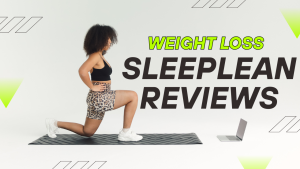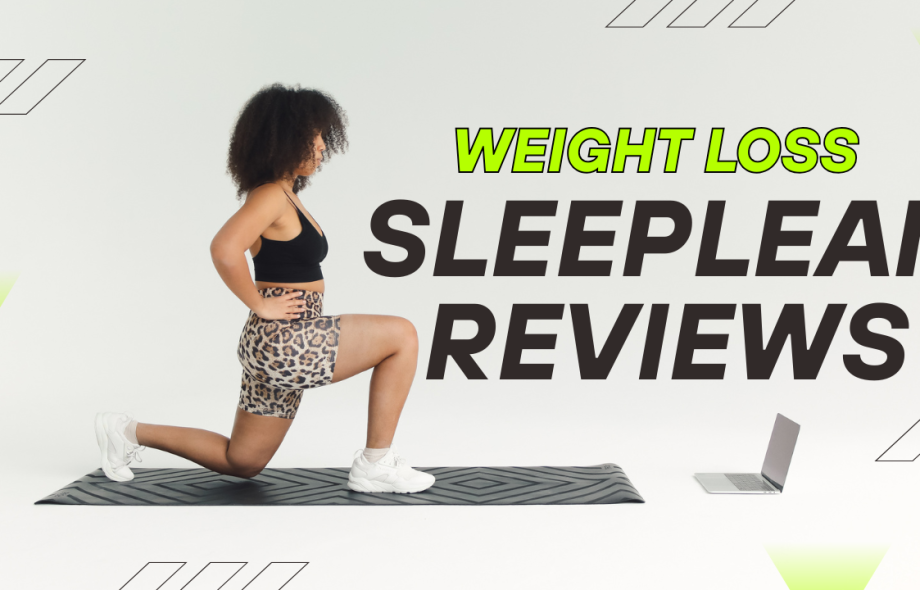
Emotional eating is one of the biggest challenges people face when trying to maintain a healthy weight. Instead of eating because the body is hungry, people eat because they are stressed, anxious, sad, or even bored. Over time, this habit can lead to weight gain, poor sleep, and unstable blood sugar.
That’s where supplements like SleepLean come in. Marketed as a nighttime formula that improves sleep and supports metabolism, SleepLean has also gained attention for another reason: helping people manage late-night cravings and emotional eating.
But does it really work? And if so, how does SleepLean help with emotional eating?
Let’s break it down step by step.
Emotional Eating: Why It Happens in the First Place
To understand if SleepLean can help, we need to look at why emotional eating happens. Here are the main drivers:
Stress and cortisol: Stress hormones make the body crave quick energy (sugar, carbs, and processed food).
Sleep deprivation: Poor sleep increases ghrelin (hunger hormone) and reduces leptin (satiety hormone).
Emotional regulation: Many people use food to numb or distract from difficult feelings.
Reward pathways: Sugary foods trigger dopamine, giving temporary pleasure and comfort.
Habit loops: Over time, eating when stressed becomes automatic, not conscious.
In other words, emotional eating is not just about willpower — it’s about biology, hormones, and habits.
Where SleepLean Fits In
SleepLean was designed primarily as a sleep and metabolism supplement, but its ingredient profile makes it uniquely suited to address some of the root causes of emotional eating.
Here’s how:
It calms the nervous system, reducing stress-driven cravings.
It regulates sleep cycles, balancing hunger and satiety hormones.
It includes herbs that reduce anxiety, which lowers the need for “comfort eating.”
It supports stable blood sugar, so users don’t wake up hungry in the middle of the night.
Ingredient Deep Dive: Emotional Eating Connection
Let’s look at SleepLean’s ingredients specifically through the lens of emotional eating.
Ashwagandha: Reduces cortisol, helping prevent stress-related sugar cravings.
Magnesium: Promotes relaxation and reduces anxiety-related snacking.
Chamomile & Lemon Balm: Both herbs are known for calming the mind and easing emotional restlessness.
Cinnamon Extract: Helps regulate blood sugar, preventing spikes and crashes that can trigger emotional hunger.
Berberine: Supports stable glucose overnight, which reduces late-night appetite surges.
Melatonin: Improves sleep quality, restoring hormone balance (ghrelin/leptin).
Together, these ingredients target both the emotional triggers and the physiological imbalances that drive emotional eating.
Real-World SleepLean Reviews: Emotional Eating Impact
From verified user reports, several patterns stand out:
Less late-night snacking: People who usually grab chips or sweets before bed say the urge is weaker.
Better emotional control: Reviewers describe feeling calmer at night, with fewer “stress eating” episodes.
Weight benefits: Some report gradual fat loss, not because SleepLean burns fat directly, but because it reduces excess snacking.
Improved morning mindset: Waking up rested lowers the emotional triggers that often carry into daytime eating.
While not every user sees dramatic changes, many confirm that SleepLean makes it easier to break free from late-night emotional eating habits.
Psychological vs. Biological Side of Emotional Eating
One key thing to remember: emotional eating has both psychological and biological sides.
Psychological side: Stress, loneliness, boredom, depression.
Biological side: Hormonal imbalance, poor sleep, blood sugar spikes.
SleepLean can’t solve the psychological side entirely — therapy, stress management, or mindfulness may still be needed. But it can help rebalance the biological side, making it easier for people to resist emotional cravings.
Benefits Beyond Emotional Eating
While emotional eating is the focus, users often report other benefits:
Deeper REM sleep → better mood regulation.
Reduced night waking → fewer trips to the fridge at 2 a.m.
Improved stress resilience → less “comfort eating” after a hard day.
Smoother metabolism → more consistent energy during the day.
Weight management support → easier calorie control without extreme dieting.
Possible Concerns and Safety Notes
No supplement is perfect, so it’s important to mention safety:
Medication interactions: Berberine and cinnamon can lower blood sugar. If you’re on diabetes medication, consult your doctor.
Individual response: Some people may be more sensitive to melatonin.
Mild side effects: A few users report vivid dreams or mild digestive discomfort.
That said, most SleepLean reviews suggest it is well-tolerated with minimal side effects.
Practical Tips: Using SleepLean for Emotional Eating
If you’re considering SleepLean to manage emotional eating, here’s how to get the best results:
Take 1 capsule 30–45 minutes before bed.
Pair with a calming routine: reading, light stretching, or meditation.
Avoid sugary snacks at night — SleepLean works best alongside mindful habits.
Track your cravings: note if late-night hunger decreases after 2–3 weeks.
Stay consistent: most benefits appear after 4–6 weeks of nightly use.
Expert Insights: Can Sleep Supplements Really Curb Emotional Eating?
Health experts agree that supplements alone aren’t a cure, but they can be a valuable tool in a larger lifestyle strategy.
Nutritionists: Highlight cinnamon and berberine as helpful for balancing glucose and cravings.
Sleep specialists: Point out that improved REM sleep can stabilize mood, lowering emotional eating triggers.
Psychologists: Stress that supplements help best when paired with stress-management techniques.
Final Verdict: Does SleepLean Help with Emotional Eating?
So, does SleepLean really help with emotional eating?
Yes — it can. While it’s not a magic fix, its combination of calming herbs, blood sugar support, and sleep regulation makes it a powerful ally for people who struggle with stress-driven cravings at night.
If you often find yourself raiding the pantry after a stressful day, SleepLean may help calm both your mind and your appetite.
If your emotional eating is linked to poor sleep and late-night hunger, SleepLean addresses the biological root causes.
For best results, it should be combined with healthy coping strategies like stress management, therapy, and mindful eating.
Bottom line: SleepLean reviews suggest it’s a safe, effective option for those who want to improve sleep and reduce emotional eating without harsh chemicals or addictive medications.
 :
https://www.pinterest.com/rudyzenreviews/
:
https://www.pinterest.com/rudyzenreviews/

